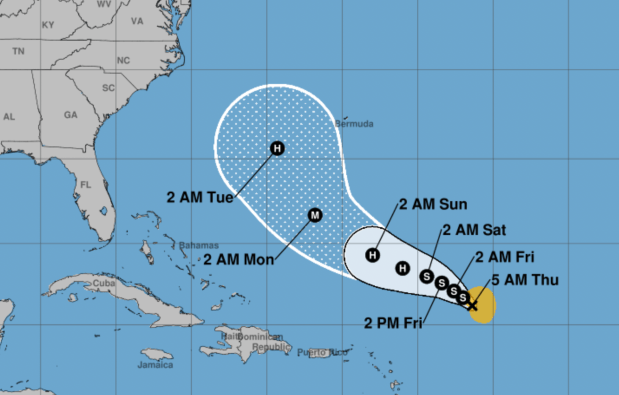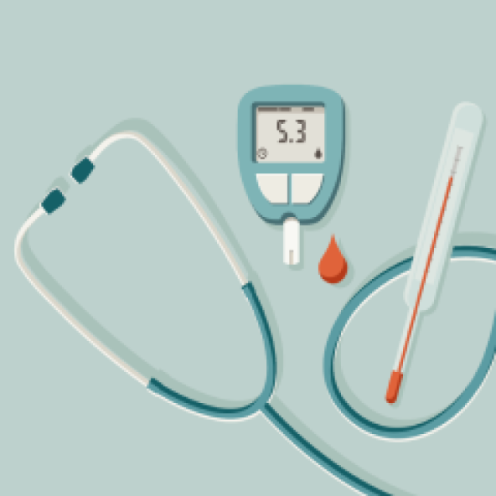An Ohio mom is opening up about being diagnosed with ovarian cancer after initially thinking she had a sinus infection.
In January, Jessica Gilbert, a mom of two from the Cincinnati, Ohio, area, was getting ready for a family trip to Disney World, a Christmas present for her 11-year-old and 7-year-old, when she starting feeling flu-like symptoms.
“I woke up with a fever, and I thought it was a sinus infection because I had a stuffy head all week,” Gilbert told ABC News. “I decided to go to my [primary care] doctor to get COVID, flu, [and] RSV tests, and they all came back negative.”
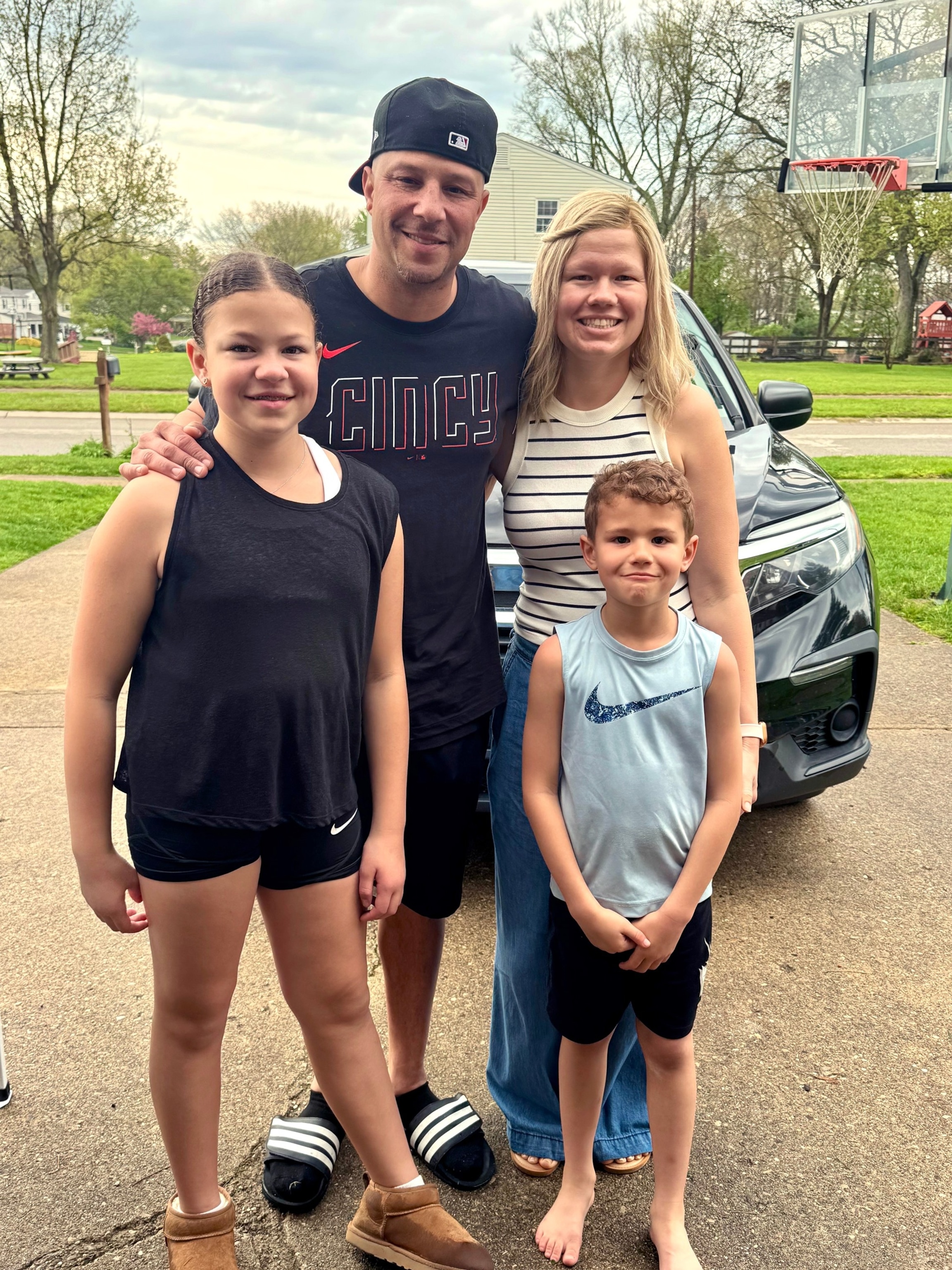
Jessica Gilbert, a mom of two, said she wants to share her ovarian cancer experience to raise more awareness about this type of cancer.
Courtesy Jessica Gilbert
The 42-year-old said she felt “off” and thought if it wasn’t a sinus infection, she might have low iron levels. She said she asked to get tested, and her doctor ordered blood tests.
After a couple of days, Gilbert said she began to feel a little bit better and told her doctor she still planned on going to Florida, but to her surprise, she said her doctor ordered her to go to the emergency room and get more tests.
Gilbert said it was at the ER where another doctor broke the news to her, saying, “I think you have ovarian cancer.”
“The whole world just stood still,” Gilbert recalled. “I was just totally shocked. [I had] no family history. I didn’t know any of the signs for ovarian cancer. I just didn’t know anything about it at all.”
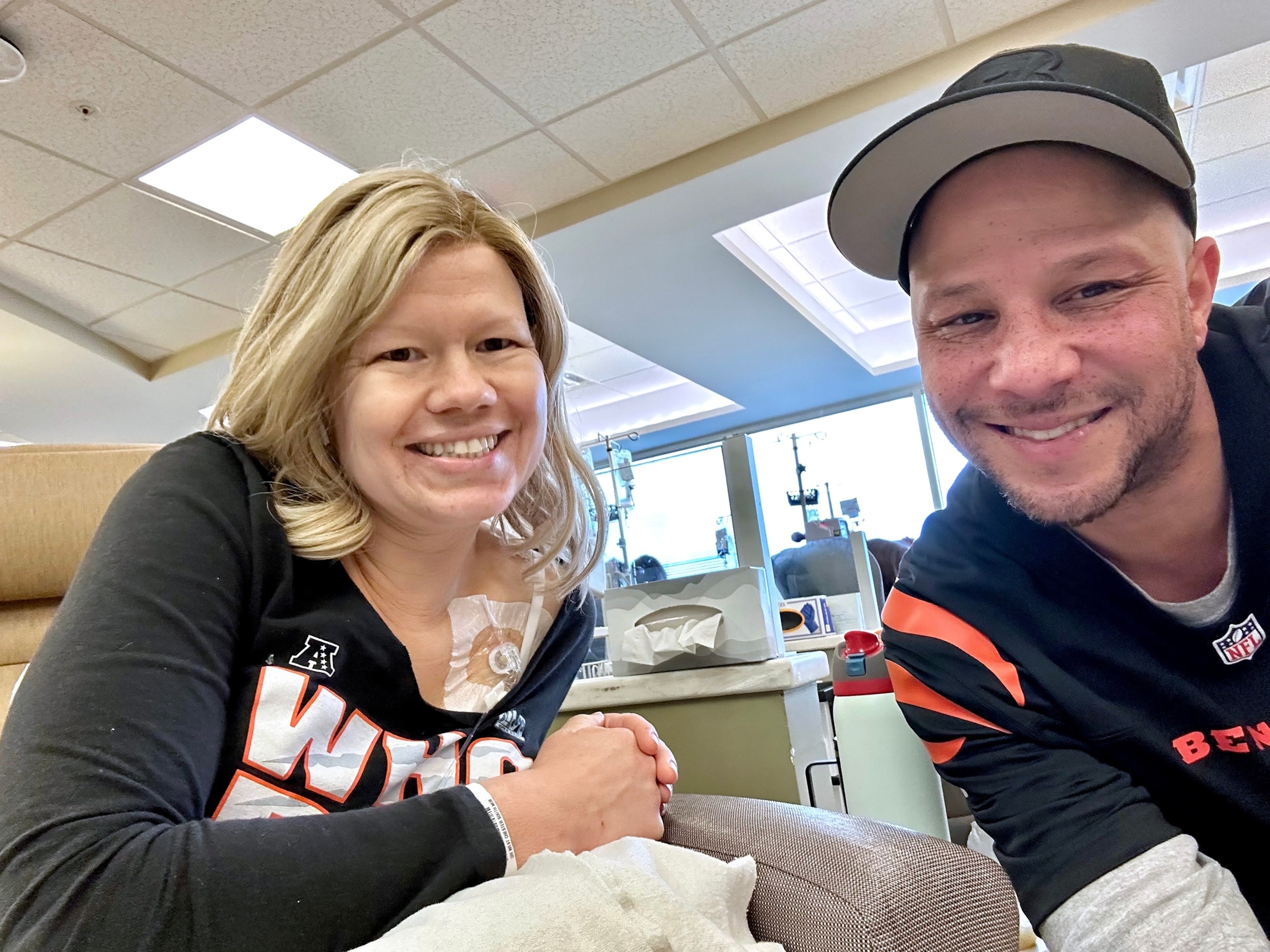
Jessica Gilbert, 42, was diagnosed with ovarian cancer in January 2025. Gilbert is pictured with her partner, Harry Kershaw IV.
Courtesy Jessica Gilbert
Gilbert said she wanted to share her personal story to raise awareness about ovarian cancer, especially since September is Ovarian Cancer Awareness Month.
“I don’t want this for my daughter or for my mom. I don’t want this for anybody else,” Gilbert said. “I don’t want them to have to find out in the ER … because I feel like there has to be something else that can be done, just so we can change people’s outcomes.”
Ovarian cancer, according to the National Cancer Institute, refers to cancer that develops in the tissues of the ovaries, the reproductive organs responsible for multiple functions, including producing eggs and hormones.
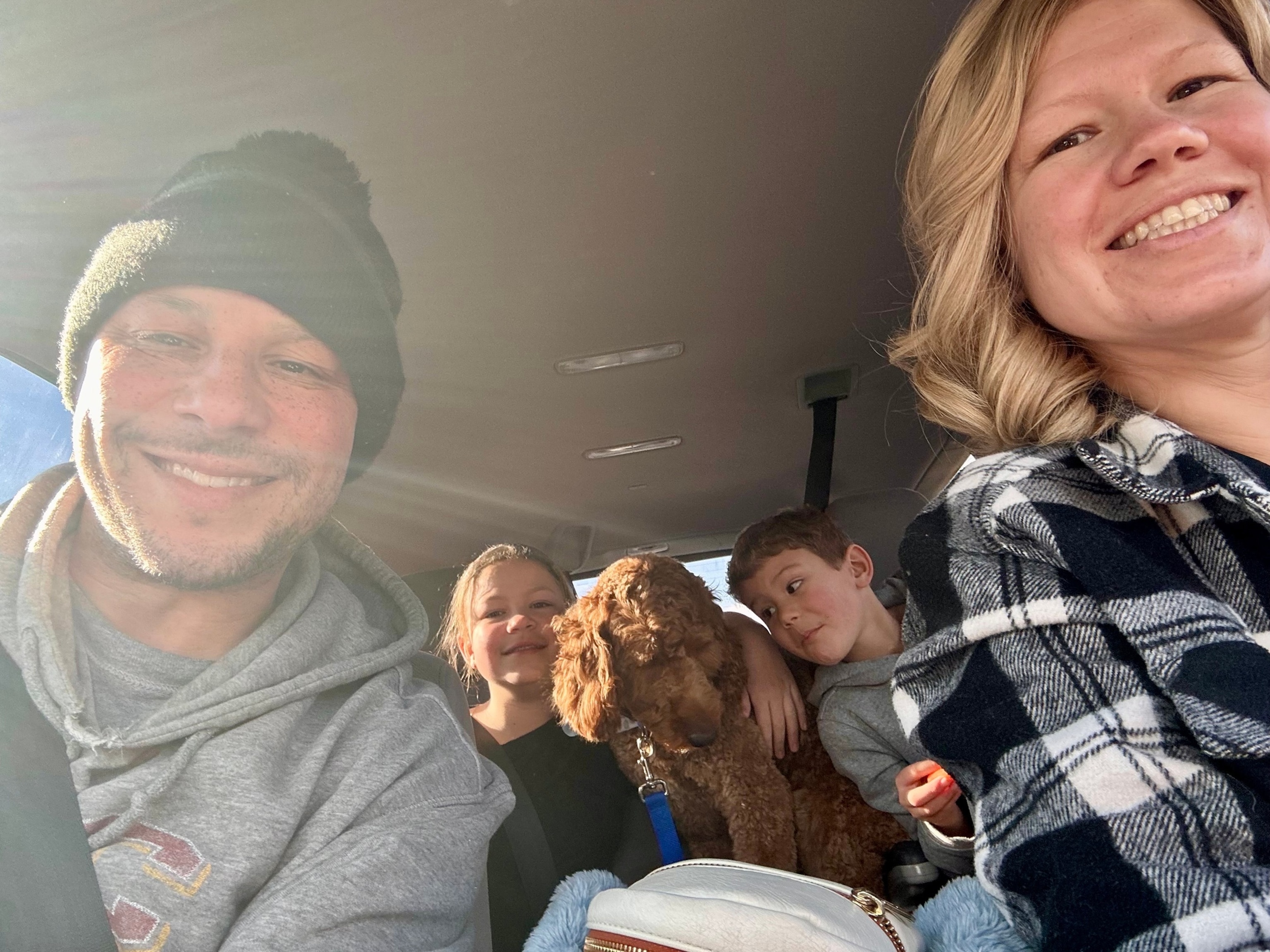
Jessica Gilbert and her partner, Harry Kershaw IV, are parents of two — 11-year-old Mia and 7-year-old Harry V. The family is pictured with their dog Maximum Overload, or Max, for short.
Courtesy Jessica Gilbert
Ovarian cancer is relatively rare, however, the National Cancer Institute notes that approximately 243,000 women in the U.S. were living with the diagnosis in 2022 estimates.
This year, estimates project nearly 21,000 new ovarian cancer diagnoses, and cases “are often advanced at diagnosis,” according to the agency.
The five-year survival rate for people with ovarian cancer is estimated to be 51%, and over 12,000 are estimated to die from this type of cancer in 2025.
The symptoms of ovarian cancer can vary, but according to the Centers for Disease Control and Prevention, they may include vaginal bleeding or discharge from the vagina, pain or pressure in the pelvic area, abdominal or back pain, bloating, feeling full too quickly, difficulty eating, constipation, or a frequent or an urgent need to urinate.
Dr. Caroline Billingsley, a gynecologist-oncologist at the University of Cincinnati Cancer Center and one of Gilbert’s doctors, treats patients with ovarian cancer, endometrial cancer, cervical cancer and other cancers.
Billingsley told ABC News many don’t know about ovarian cancer like they might about other types of cancers, such as breast cancer or lung cancer, and awareness and support for clinical trials can go a long way to help people who are living with these diseases.
“I feel like a lot of people don’t talk about women’s below-the-belt cancers, and so, women don’t know any of the signs or symptoms, because they just aren’t aware of them,” Billingsley said. “And ovarian cancer is really sneaky. It is a cancer that does not have one thing that is very easy to tell, ‘Oh, this is definitely ovarian cancer.’ And it’s very slow initially, in terms of the symptoms, but then very fast growing on the inside.”
Doctors treat ovarian cancer in various ways, including with surgery, chemotherapy, targeted therapy, radiation and immunotherapy.
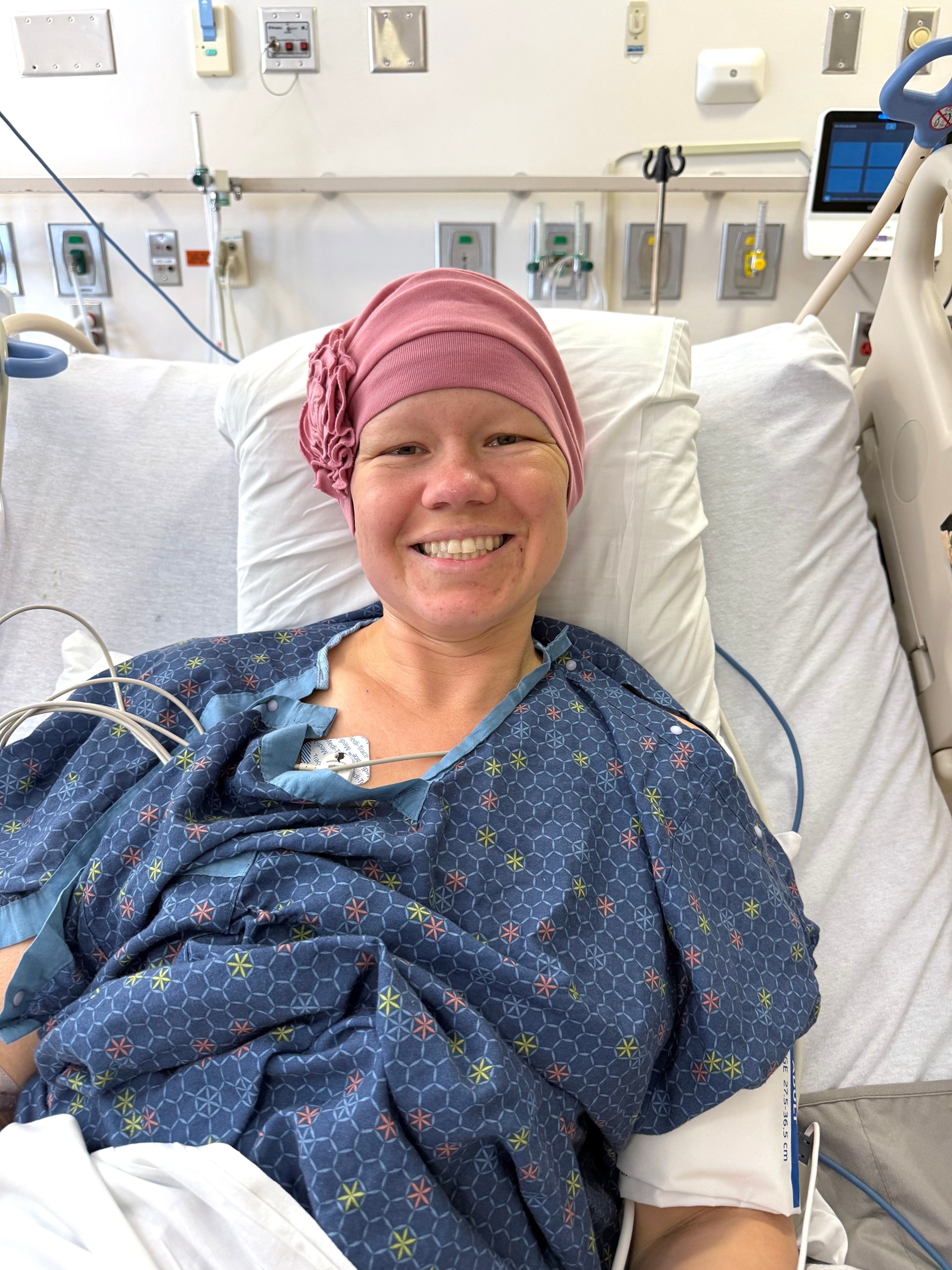
Jessica Gilbert is receiving treatment for ovarian cancer at UC Medical Center in Ohio.
Courtesy Jessica Gilbert
Gilbert said she underwent multiple cycles of chemotherapy and surgery and is currently on targeted maintenance therapy with medications.
Despite all of the immense challenges she’s gone through this year, Gilbert said she’s making sure to stay hopeful and prioritize what’s important to her.
“[I] just try to be in the present and just enjoy life. I went on the roller coaster with my son a couple weeks ago … and that meant the world to me,” Gilbert said. “I missed out on some things but I still was at my daughter’s dance recital during chemo with my mask on, so I could be there for her.”
Speaking to others also living with the disease, she added, “Take care of yourself, but get out there and still live your life.”

